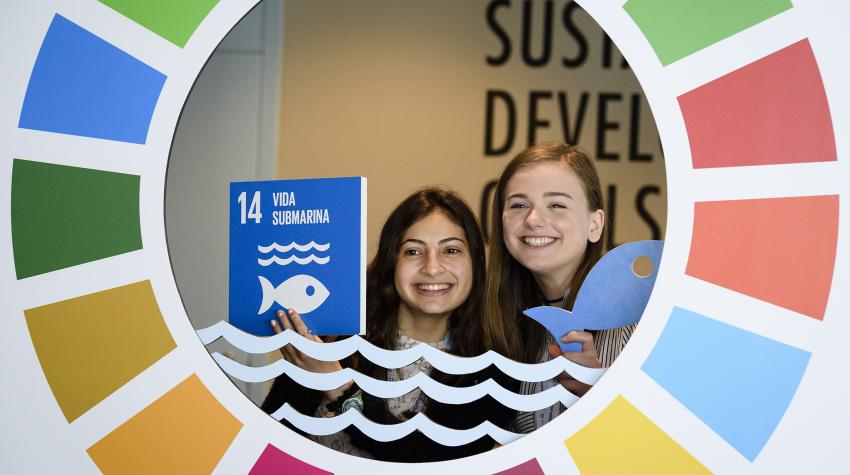World Oceans Day, celebrated every year on 8 June, is an opportunity to reflect on the importance of oceans to our lives and livelihoods, and the environmental impact of human activity on oceans.
The University of Bergen (Norway), United Nations Academic Impact (UNAI) SDG Hub for Goal 14: Life below water, is a center of scholarship, research and innovation for the preservation of oceans for the future of mankind.
In this series commemorating World Oceans Day, the University of Bergen explores various aspects of sustainable oceans and how universities can contribute to the stewardship of this natural resource. In this article, the university explores the role of education in ocean science and sustainability.
“The University of Bergen has a long tradition as a marine university. Our research and education has resulted in scientific discovery and also been vital for developing industries such as fisheries, oil and gas, and marine biology to mention a few,” according to Professor Lise Øvreås. Professor Øvreås leads Ocean Sustainability Bergen and helped launch the university’s multidisciplinary SDG14 course in spring 2019.
“We need to view the whole and see how the parts interact for a course on SDG14 to have full impact. The biology and biodiversity of life below water cannot be seen without viewing it alongside how we harvest the fruits of the ocean, and also how we preserve natural resources for the future. Looking at settlement on the coast, policy making, law and history are important in this context,” she explained.
The 2030 Agenda for Sustainable Development makes concrete references to institutions of higher education as valuable stakeholders in the implementation of the Sustainable Development Goals. And indeed, education for sustainable development is a target in itself, that enables people to get the skills and values needed to address challenges like those related to the active protection of the oceans.
Associate Professor Katja Enberg, a marine biologist, serves as the SDG14 course coordinator. “The SDGs stood out as a current topic and very useful for students’ future careers. By creating this course on SDG14, we encourage students to understand how research can be implemented in society,” she highlighted.
“The SDGs cannot be viewed isolated. When you look at SDG14, you need to take in the other 16 SDGs. This is why we wanted a course open to students across faculties on campus: getting natural science students and social science students or humanities students and medicine students together to bring different knowledge to the table,” said Prof. Enberg, emphasizing the need for a multidisciplinary approach. “This is how we need to work in modern society if we are to achieve a more sustainable world.”
Professor Øvreås views the SDG14 course as a precursor for developing future SDG-oriented research and education. “Sustainability must run through everything we do. Students must get this into their curriculum from the start. The goal is that this will then be implemented into their future studies and when they enter the workforce. It is necessary to move fast,” she said.
To find out more about what our SDG Hub for Goal 14 is doing, click here.
List of additional resources:
- Official UN World Oceans Day Portal
- UN ESCAP Theme Study “Changing Sails: Accelerating Regional Actions for Sustainable Oceans in Asia and the Pacific”
- UNESCO Global Ocean Science Report “Current Status of Ocean Science Around the World”
- UN Report “The Ocean and the Sustainable Development Goals Under the 2030 Agenda for Sustainable Development”
- UN SDGs Knowledge Platform - Oceans & Seas

